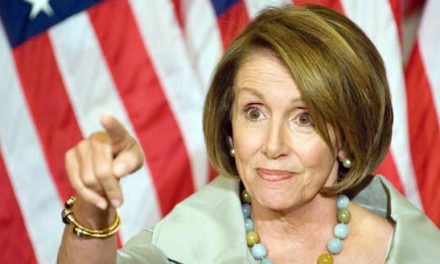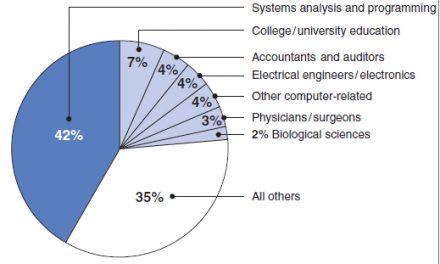In The Guardian
April 21. 2019 at 10:52 am
What we know so far:
- At least 207 people have been killed and 450 injured in a series of explosions targeting churches holding Easter services and hotels. Most of the explosions are believed to have resulted from suicide bombings.
- Most of the dead were locals but 36 foreigners are believed to have been killed. Five British citizens have been confirmed to have lost their lives (including two who also hold US citizenship), as well as three people from India, one from Portugal and two from Turkey. The Dutch foreign minister said one of the country’s citizens was also killed. Britons were among the injured, the British high commissioner to Sri Lanka said.
- No one has claimed responsibility for the attacks but several arrests have been made and Sri Lanka’s defence minister, Ruwan Wijewardene, said the culprits were religious extremists. He said seven people had been apprehended, while a police spokesman said three had been arrested with others questioned.
- The arrests were made as police raided a housing complex in in the Dematagoda neighbourhood of Colombo, three hours after the initial six blasts. Another blast occurred during the operation killing three police officers.
- The government imposed a curfew of indefinite duration and also shut down social media and messaging services. Schools will not reopen until Wednesday at the earliest.
- Before shutting down social media, government ministers urged people not to foster “racial disharmony”. In recent years, social media has been used in Sri Lanka to spread rumours about minorities, inciting violence.
- There were six initial blasts, at three hotels and three churches, before two more explosions some time later. One was during the police raid and the other was at a guest house.
- The prime minister, Ranil Wickremesinghe, condemned the “cowardly” attacks and urged people to remain “united and strong”. He convened Sri Lanka‘s top military officials at an emergency meeting of the national security council.
- The archbishop of Colombo, Cardinal Ranjith, called it “a very sad day” and urged the government to identify the attackers and “punish them mercilessly because only animals can behave like that”.
- There has been condemnation of the attacks from around the world, including from Narendra Modi, Imran Khan, Theresa May and Donald Trump. May called the violence “truly appalling” and said that “no one should ever have to practise their faith in fear”.
- Pope Francis denounced the “cruel violence” of the Easter Sunday attacks in Sri Lanka and said he would pray for all those affected. He added his condemnation at the end of his traditional Easter Sunday blessing in St Peter’s Square.
Colombo, Sri Lanka, April 21, 2019, 10:52 am – Sri Lanka declared curfew after an eighth blast was reported by police in Colombo today. A while earlier, the seventh blast killed two people in the capital.
Six nearly simultaneous blasts rocked the country early today morning. The first six blasts hit three churches and three five-star hotels during Easter mass. These are the first major attacks since the end of the civil war 10 years ago.
Here is some background on Sri Lanka’s recent past:
Sri Lanka’s coastline of white sand beaches with crystal clear waters, coupled with its abundant flora and fauna can give it the appearance of an island paradise.
But the country has a troubled recent past, emerging only 10 years ago from a bloody civil war that killed as many as 100,000 people.
The conflict between government forces and separatist Tamil Tigers rebels raged for 26 years. Since the end of the war, the former British colony (then known as Ceylon) has been attempting to get back onto its feet, with some success.
The number of tourists was 448,000 in 2009 but has quadrupled to more than two million a year, reflecting diminishing safety concerns.
But tensions have remained between the different ethnic and religious groups that make up the 21.4 million people on the island.
The end of the war came about as a result of a 2009 government offensive, believed to have killed up to 40,000 Tamils in the last few months alone. The government was made up of members of Sinhalese Buddhist majority who account for 70% of the population, while Tamils are mainly Hindu (13% of the island’s inhabitants are Hindu).
In March, the UN human rights chief warned Sri Lanka could slip back into conflict unless it addressed the “worst crimes” during the final stages of the conflict.
Another problem has been the flare up of tensions between the Sinhalese majority and Muslims, who make up 10% of the population.
Last year, anti-Muslim violence flared across the hills of central Sri Lanka, fed by social media rumours about attacks on Buddhists. Mobs of Buddhists swept through small towns, attacking mosques and Muslim-owned shops.
The government briefly declared a state of emergency and ordered popular social media networks to be temporarily blocked to prevent the violence from spreading.
Such recent conflagrations explains why, after Sunday’s attacks, ministers were so keen to urge people to refrain from expressing sentiments that could cause “racial disharmony” and have once again shut down social media.
The British ruled Ceylon, previously controlled by the Dutch and Portuguese from 1815 until independence in 1948.





